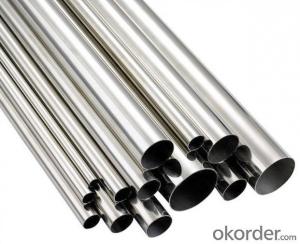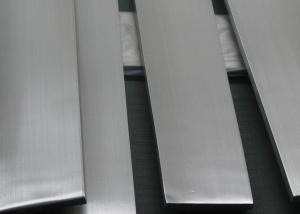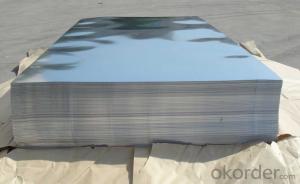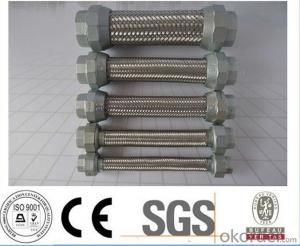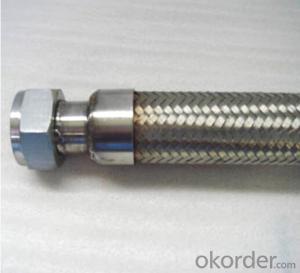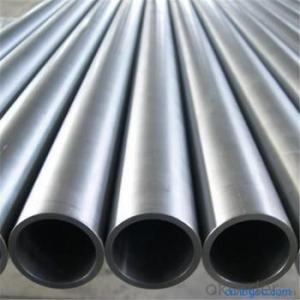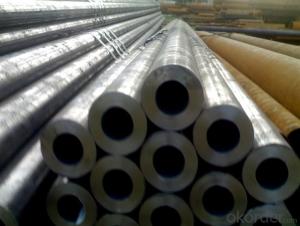Boiler Heat Exchanger Stainless Steel Pipe
- Loading Port:
- Tianjin
- Payment Terms:
- TT or LC
- Min Order Qty:
- 25 m.t.
- Supply Capability:
- 10000 m.t./month
OKorder Service Pledge
OKorder Financial Service
You Might Also Like
Product Description:
1、Structure of Boiler Heat Exchange stainless steel pipe 2507 ASTM A213 Description:
Boiler Heat Exchange stainless steel pipe is often used in the heating system. Heating system, or those stored energy (such as solar energy) in the form of heat, need to be built with the material that can withstand temperatures up to 550 degrees Celsius. High chromium molybdenum welded steel pipe can work in the extreme, which maintain as the ideal material for the construction of power station.
2、Main Features of Boiler Heat Exchange stainless steel pipe 2507 ASTM A213:
• High manufacturing accuracy
• High strength
• Small inertia resistance
• Strong heat dissipation ability
• Good visual effect
•Reasonable price
3、Boiler Heat Exchange stainless steel pipe 2507 ASTM A213 Images:
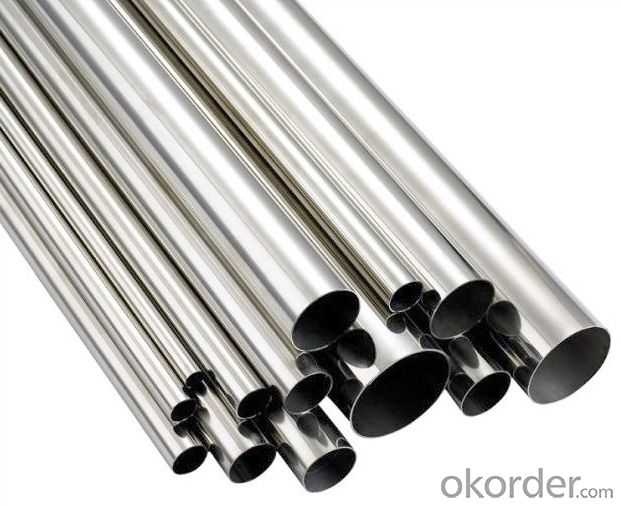
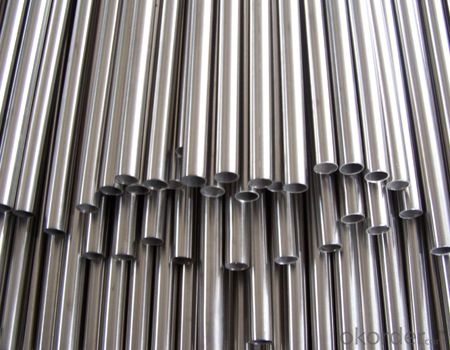
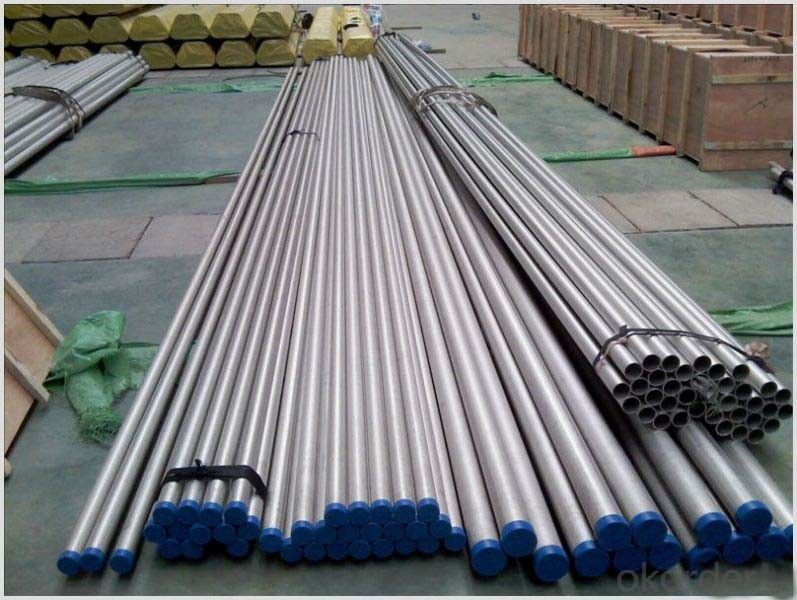
4、Boiler Heat Exchange stainless steel pipe 2507 ASTM A213 Specification:
1)Commodity: heat exchanger pipe
2))Material: 304,316L,304L,316,321,310S,etc
3)Thickness:0.5-100mm
4)Length: 1-14m
5、FAQ of Boiler Heat Exchange stainless steel pipe 2507 ASTM A213:
①How is the quality of your products?
Our products are manufactured strictly according to national and internaional standard, and we take a test on every pipe before delivered out. If you want see our quality certifications and all kinds of testing report, please just ask us for it.
Guaranteed: If products’ quality don’t accord to discription as we give or the promise before you place order, we promise 100% refund.
②How about price?
Yes, we are factory and be able to give you lowest price below market one, and we have a policy that “ for saving time and absolutely honest business attitude, we quote as lowest as possible for any customer, and discount can be given according to quantity”,if you like bargain and factory price is not low enough as you think, just don’t waste your time.Please trust the quotation we would give you, it is professional one.
③Why should you chose us?
Chose happens because of quality, then price, We can give you both.Additionally, we can also offer professional products inquiry, products knowledge train(for agents), smooth goods delivery, exellent customer solution proposals.Our service formula: good quality+good price+good service=customer’s trust
SGS test is available, customer inspection before shipping is welcome, third party inspection is no problem.
Any question, pls feel free to contact us !
- Q:Are stainless steel pipes more expensive than other materials?
- Stainless steel pipes are generally more expensive than other materials, but they offer significant advantages that justify their higher cost. Stainless steel pipes are known for their exceptional durability, corrosion resistance, and longevity. They can withstand extreme temperatures, harsh chemicals, and high pressure, making them suitable for a wide range of applications such as construction, plumbing, and industrial processes. Additionally, stainless steel pipes require minimal maintenance, reducing long-term costs. While the initial investment may be higher, the superior performance and extended lifespan of stainless steel pipes make them a worthwhile choice in many scenarios. Ultimately, the decision to choose stainless steel pipes should be based on the specific requirements and budget constraints of the project.
- Q:Are stainless steel pipes suitable for pharmaceutical industries?
- Yes, stainless steel pipes are highly suitable for pharmaceutical industries. They offer excellent corrosion resistance, durability, and hygienic properties, making them ideal for transporting and storing pharmaceutical products. Stainless steel pipes are easy to clean, maintain, and sterilize, ensuring the integrity and safety of the pharmaceutical products being handled. Additionally, stainless steel is non-reactive, meaning it does not contaminate or affect the quality of the pharmaceutical substances being transported, making it a reliable choice for the pharmaceutical industry.
- Q:Can stainless steel water pipes be cooled and bent?
- Stainless steel pipe is a kind of hollow long strip round steel, mainly used in petroleum, chemical, medical, food, light industry, machinery, instrument and other industrial pipeline and mechanical structure parts.
- Q:Can stainless steel pipes be insulated with polystyrene sulfonate?
- Yes, stainless steel pipes can be insulated with polystyrene sulfonate. Polystyrene sulfonate is a commonly used material for insulating pipes due to its thermal insulation properties and resistance to moisture and chemicals. It can be easily applied to stainless steel pipes to provide effective insulation and prevent heat loss or gain.
- Q:What are the limitations of using stainless steel pipes?
- Some limitations of using stainless steel pipes include their higher cost compared to other materials, their susceptibility to corrosion in certain environments, and their lower thermal conductivity compared to materials like copper. Additionally, stainless steel pipes may be more difficult to cut and weld, and their strength and durability may vary depending on the specific grade of stainless steel used.
- Q:Why can't stainless steel be put together with carbon steel tube?
- Potential difference: the stainless steel pipe with a more positive potential and the carbon steel pipe with negative potential are even connected. The stainless steel tube is cathode, and the carbon steel tube is anode. The greater the potential difference between the two, the greater the galvanic corrosion tendency.
- Q:Can stainless steel pipes be used for chemical drainage?
- Certainly! Stainless steel pipes are a viable option for chemical drainage due to their exceptional resistance to corrosion. This quality is what makes stainless steel suitable for a wide range of industrial applications, including the construction of chemical drainage systems. The material's ability to withstand the corrosive properties of numerous chemicals, acids, and alkalis makes it a highly durable and dependable choice for the transportation of chemical waste. Moreover, stainless steel pipes are not only easy to clean and possess a long lifespan, but they also exhibit resistance to high temperatures. Consequently, they are often the preferred selection for chemical drainage purposes in various industries. Nevertheless, it is crucial to seek guidance from professionals or field experts to ensure that the specific type of stainless steel employed is compatible with the chemicals to be transported.
- Q:Do stainless steel pipes require insulation?
- Stainless steel pipes generally do not require insulation, as they have a high resistance to corrosion and can withstand high temperatures. However, there are certain situations where insulation may be necessary. For instance, when transporting fluids at extremely low temperatures, insulation helps to prevent heat transfer and maintain the temperature of the fluid. Additionally, in environments where condensation may occur, insulation can prevent moisture from forming on the pipes and causing potential damage. Overall, the need for insulation in stainless steel pipes depends on the specific application and the conditions in which they are used.
- Q:Can stainless steel pipes withstand high temperatures?
- Stainless steel pipes are renowned for their remarkable ability to resist heat and endure extreme temperatures. The temperature capacity of stainless steel pipes relies on the specific grade employed. Typically, stainless steel pipes retain their structural integrity even at temperatures as high as 1200°C (2192°F). Furthermore, these pipes possess exceptional resistance to corrosion, rendering them ideal for industrial settings that involve both high heat and corrosive surroundings, such as chemical processing plants, power generation facilities, and automotive exhaust systems.
- Q:What are the common types of fittings used with stainless steel pipes?
- The common types of fittings used with stainless steel pipes include butt-weld fittings, socket-weld fittings, threaded fittings, and compression fittings. These fittings ensure secure connections between stainless steel pipes, allowing for efficient and reliable fluid or gas flow.
1. Manufacturer Overview |
|
|---|---|
| Location | |
| Year Established | |
| Annual Output Value | |
| Main Markets | |
| Company Certifications | |
2. Manufacturer Certificates |
|
|---|---|
| a) Certification Name | |
| Range | |
| Reference | |
| Validity Period | |
3. Manufacturer Capability |
|
|---|---|
| a)Trade Capacity | |
| Nearest Port | |
| Export Percentage | |
| No.of Employees in Trade Department | |
| Language Spoken: | |
| b)Factory Information | |
| Factory Size: | |
| No. of Production Lines | |
| Contract Manufacturing | |
| Product Price Range | |
Send your message to us
Boiler Heat Exchanger Stainless Steel Pipe
- Loading Port:
- Tianjin
- Payment Terms:
- TT or LC
- Min Order Qty:
- 25 m.t.
- Supply Capability:
- 10000 m.t./month
OKorder Service Pledge
OKorder Financial Service
Similar products
New products
Hot products
Hot Searches
Related keywords
